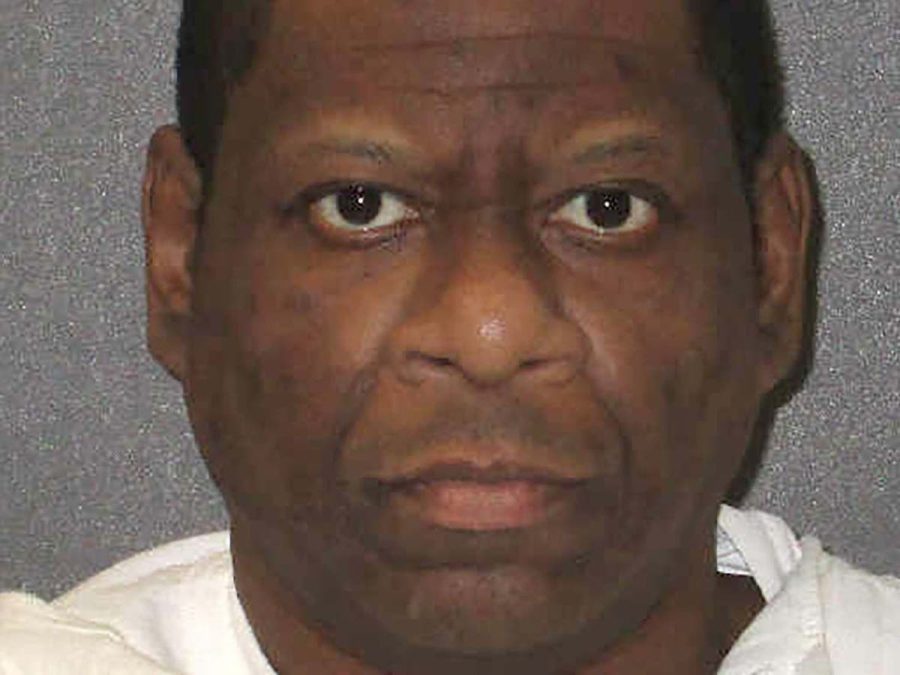
[ad_1]
The Supreme Court has heard a plea from death row inmate Rodney Reed, a Black man, who argues that a jury of only white people wrongly convicted him of killing a white woman in Texas in 24 years ago.
Reed is seeking DNA evidence to prove that he’s innocent following his 1998 conviction. The Supreme Court heard oral arguments in the case on Tuesday.
Courts in Texas have rejected several of Reed’s appeals. Numerous celebrities have shown their support for Reed, such as Kim Kardashian and Rihanna, including signing a petition calling on Texas to stay the execution.
In the US, 375 people have been exonerated via DNA tests – 21 of them were on death row, according to the Innocence Project, which is representing Reed.
Legal journalist Chris Geidner tweeted on Tuesday that “Texas fighting to the Supreme Court to deny DNA testing to a guy whose life half of the country fought to save in 2019, preventing his execution then, so that Texas can carry forward his execution now is another reminder of how broken our criminal legal system is”.
“This is a procedural case, in its words. The arguments are basically incomprehensible to a non-lawyer (and many lawyers),” he added.
Law & Crime reported that Reed claims that the woman was his secret girlfriend.
The case, Reed v Goertz, arrived at the high court from the US Court of Appeals for the Fifth Circuit.
Reed was sentenced to death following the 1996 rape and murder of Stacey Stites, 19, who was discovered strangled with her own belt on the side of a Texas back road. The investigation found that semen matching Reed’s genetic profile was located in her body when she died.
He has said that he didn’t assault her, but that they had had a consensual, secret relationship.
(Ricardo B. Brazziell/Austin American-Statesman via AP)
Reed argued at his trial that the man responsible for her death was likely her fiance, police officer Jimmy Fennell.
Following the discovery of her body, Mr Fennell’s truck was found abandoned near the scene, as well as half of Ms Stites’s belt.
Reed has attempted to have items found near the scene DNA tested, but he has so far been unsuccessful.
The court of appeals in the fifth circuit said that Reed’s case had missed its filing deadline. The appeal of that ruling is now what the Supreme Court is hearing.
The justices are set to decide on how to apply the statute of limitations.
Reed is arguing that the correct statute starts to run when all state court appeals have ended. The state of Texas says that it began when the trial court declined Reed’s request.
They also argue that the case shouldn’t be heard in federal court at all and that local prosecutor Bryan Goertz shouldn’t have been named as the defendant.
The justices mainly asked about different rules governing procedure, according to Law & Crime.
Reed’s timeline would give courts a “simple, predictable, and sensible” process for allowing claims, his lawyer Parker Rider-Longmaid argued.
Judd Stone, the Texas Solicitor General, said that the justices should instead use his point of view on filing deadlines to “discourage prisoners from manipulating” the rules.
The justices gave no real hints about which way they may rule during the oral arguments, Law & Crime noted.
The Independent and the nonprofit Responsible Business Initiative for Justice (RBIJ) have launched a joint campaign calling for an end to the death penalty in the US. The RBIJ has attracted more than 150 well-known signatories to their Business Leaders Declaration Against the Death Penalty – with The Independent as the latest on the list. We join high-profile executives like Ariana Huffington, Facebook’s Sheryl Sandberg, and Virgin Group founder Sir Richard Branson as part of this initiative and are making a pledge to highlight the injustices of the death penalty in our coverage.
[ad_2]
Source link
